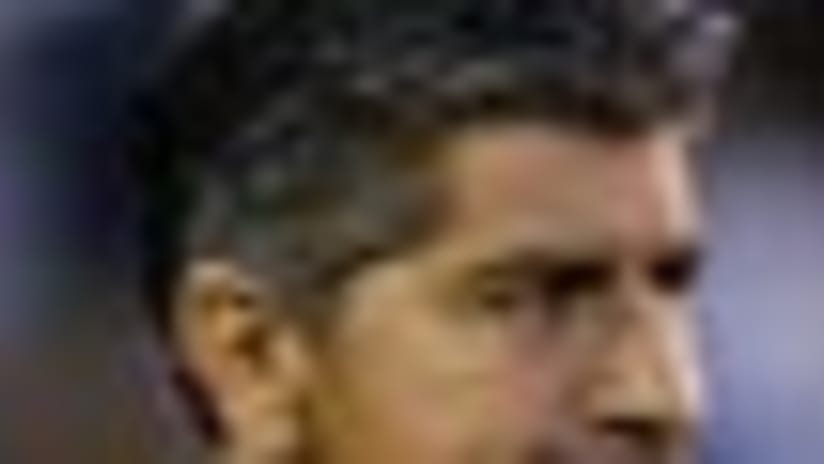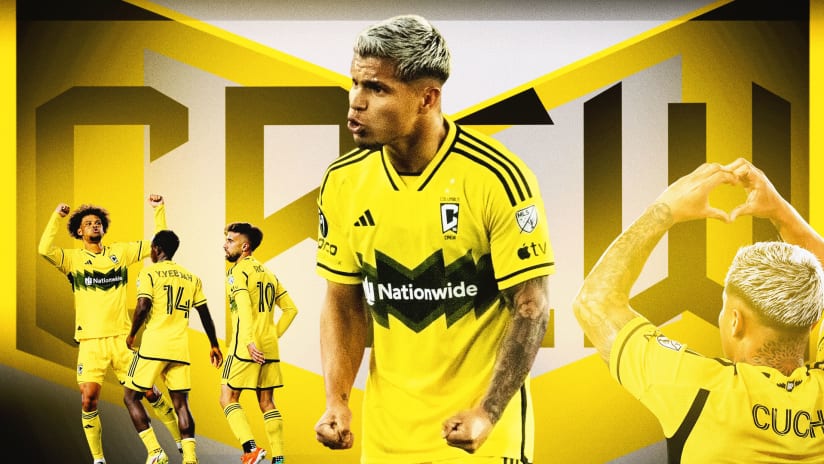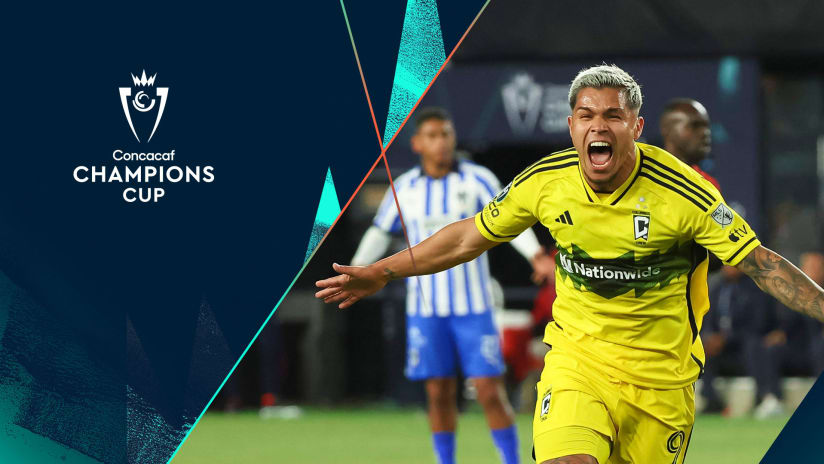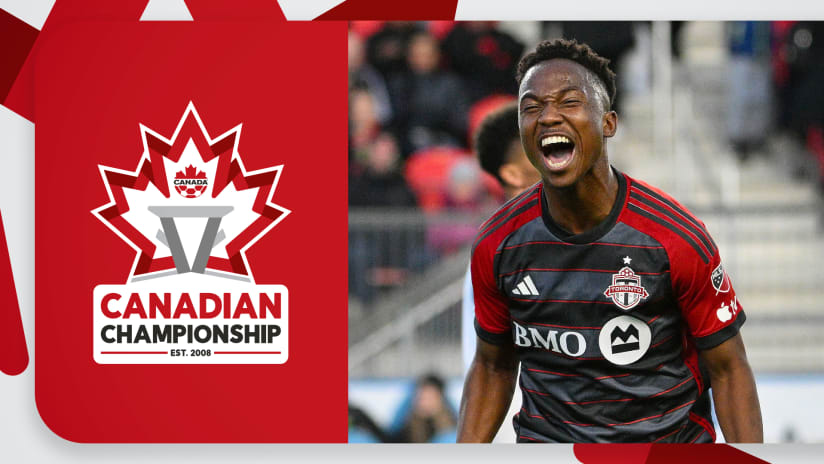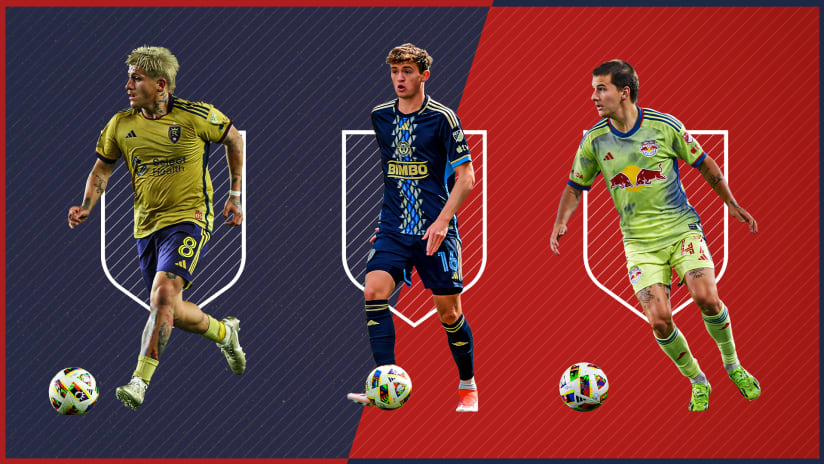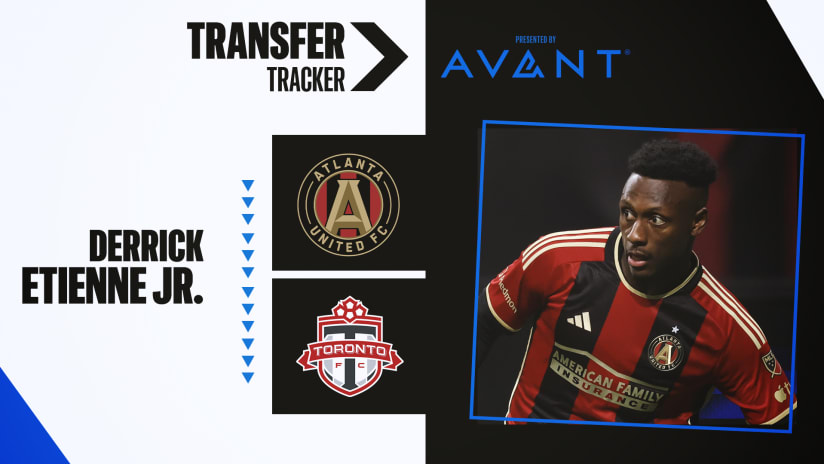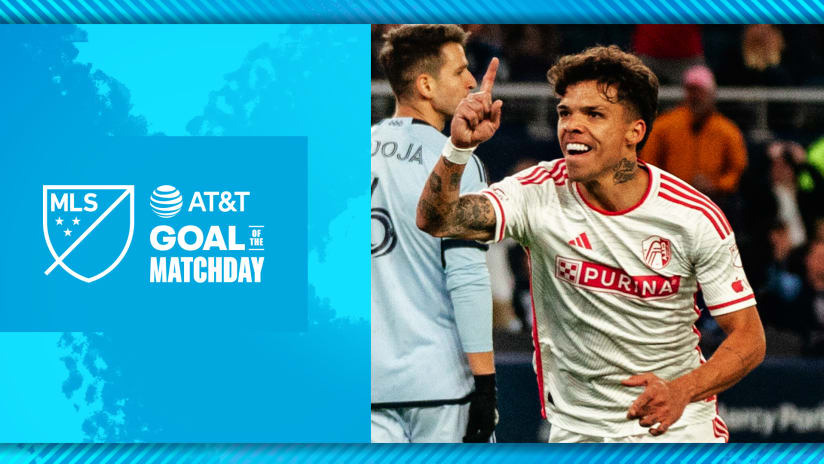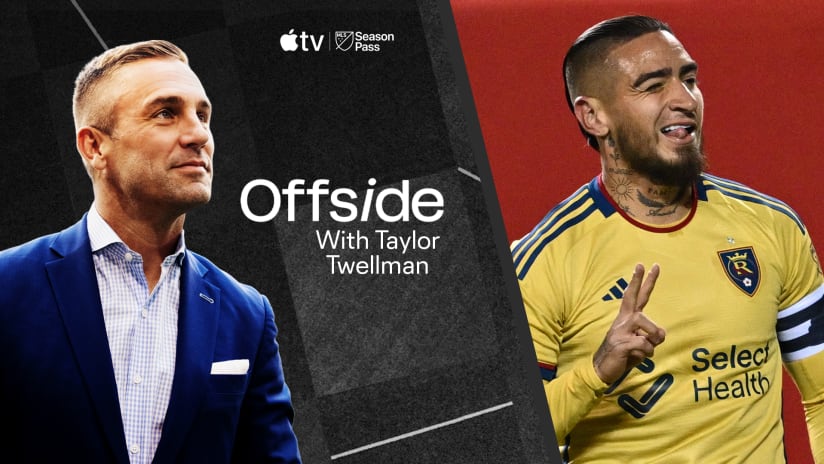the 1998 Los Angeles Galaxy, arguably the best team never to reach or capture an MLS Cup.
The Galaxy had one of the most intimidating sides in MLS' first decade, with an attack that went forward at will.
For the record, the Galaxy finished with a 24-8 mark, averaged an all-time best 2.12 points a game, scored a league-record 85 goals and allowed a league-low 44 goals for that season. The Galaxy forged that record in the days when one-point shootout wins were counted alongside three-point regulation victories. Subtract the two shootout triumphs and the Galaxy still finished with a league-record 22 regulation wins, a mark that would be difficult to duplicate today because so many teams play for ties on the road.
Not surprisingly, the Galaxy didn't just beat opponents, L.A. mauled its foes by scores such as 8-1 and 5-1.
"We had a good core of players," former Galaxy coach Octavio Zambrano said. "The addition of the players who had drafted made it a really, really good team. I think that was what made that team special. We didn't lose much when we substituted. We were a team that did not have eight good players, two average players, maybe one was so-so and one or two that may come in and contribute."
After all, the best defense is ball possession and forcing the opponents to play from behind.
The Galaxy did it with some flair.
"One of my favorite speeches was: 'Surprise me and make me see something that I hadn't seen before. Think of me as a spectator, not as a coach. Think of this as entertainment and you want to surprise people. You want to do the unexpected, You want to do something that is not the usual thing.'" Zambrano said. "More times than not, they did, they did surprise me. Not only did we play good soccer, but some of the goals we scored were really, really quality goals. It wasn't the type where someone made a blunder and here we are. We connected from the back to the midfield, went forward and boom, we finished."
The seemingly endless cast of players either had strong careers back in the day or went on to forge their own reputations in the league: Goalkeepers Kevin Hartman and Matt Reis; defenders Robin Fraser, Greg Vanney, Paul Caligiuri, Steve Jolley, Joey Franchino, Dan Calichman and Ezra Hendrickson; midfielders Mauricio Cienfuegos, Martin Machon, Cobi Jones (who also played forward), Clint Mathis, Danny Pena and forwards Welton and Carlos Hermosillo.
A number of those players enjoyed career years.
Jones finished with 19 goals and 13 assists, despite missing eight games due to World Cup duty. His next best seasons statistically? Eight goals in 1999 and 10 assists in 2001.
The same went for the playmaking Cienfuegos, who collected 13 goals and 16 assists. His next best seasons? Six goals in 1997 and 17 assists in 1999.
Welton, who was picked up via waivers from the New England Revolution, had 17 goals and 11 assists. His next best season? Eleven goals in 1997. He finished with 43 MLS career goals.
Machon added six goals and 14 assists and Mexican international Hermosillo, a midseason addition, contributed six goals and 12 assists after a slow start. Mathis (five goals, 10 assists) was a rookie in a part-time role and Hendrickson (five goals, eight assists) was a force overlapping from the right fullback spot.
Zambrano felt they and other teammates enjoyed their career seasons due to his training sessions, in terms of length -- two hours -- and repetition of drills.
"We practiced more than other teams," Zambrano said. "I remember getting a lot of flack and ultimately it cost me because some of the players were not used to that pace, that kind of training.
"All of these guys criticized it. They had their best years under me. That was true with the MetroStars later on. When they are in their playing careers, they don't see it. It's only after they go away, they try to find the reason for their success."
Those training sessions stressed repetition. For example, Zambrano had Jones and Cienfuegos work on their finishing.
"Cobi, as a natural athlete, he was one of those guys who did not need that much training, as far as fitness training," he said. "Cobi could stop working out and he could run all day the next day like nothing happened. But what I managed to do at that time is ... really refine his finishing. It was a process of high repetition. I made him cross the ball, not 10, 20 times. I used to make him finish many, many times."
The same went for Cienfuegos.
"He never shot the ball from outside of the 18," Zambrano said. "I used to make him do, not 10, 20 (but) 50 balls from outside the 18 in a week. We used to do it again and again. At some point players may think of this as a boring training. But in reality, it was the refining of their technique. ... The results speak for themselves."
Despite of its regular-season success, the 1998 Galaxy will be known as one of the best teams not to reach MLS Cup or win it.
L.A. had little problem dispatching the Dallas Burn in the Western Conference semifinals, winning 6-1 and 3-2. But the Galaxy came up against a tough Chicago Fire side in the finals that boasted the likes of eventual MLS Cup MVP Peter Nowak, Lubos Kubik, Chris Armas and Zach Thornton, among others.
This time the Galaxy met its match as good defense shut down good offense.
The Fire, guided then by current MetroStars coach Bob Bradley, blanked L.A. at the Rose Bowl 1-0 and survived a shootout at home when the teams ended regulation drawn 1-1.
"Against Chicago, we ran into a very good team, no doubt, an excellent team," Zambrano said. "It was well put together. He had a mission and his mission was results. They worked for results and they got it. There were some migrating factors at the end. You could have argued a call here or there would have made a difference."
Instead, Zambrano and the Galaxy watched from the Rose Bowl stands as the Fire captured MLS Cup.
"It was very disappointing," he said. "That team deserved to be there. It did everything I asked it to do leading up to the playoffs. We couldn't solve the riddle of playing against a team that wanted to hold and play for the counter. I'm not knocking them. That was a good team in their own right. They also played well not only against us, but against other teams. We had difficulty playing against that team. In the end, they were the victors and that's what counts."
Zambrano returned for another shot at MLS glory in 1999, but after a 2-3 start -- both wins were one-point shootouts -- he was fired and replaced by Sigi Schmid. He eventually directed the MetroStars for three seasons through 2002.
At the moment, Zambrano is not in soccer. He runs a company, Pro Talent, Inc., that helps talented artists showcase their talents, including painters and sculptors. His latest discovery is Ecuadorian Leonardo Hidalgo from Miami.
"We have had an incredible success with him," Zambrano said. "I am having a blast."
Zambrano disclosed he has been an art aficionado and collector for a long time, owning 38 acrylics and more than 70 oil paintings.
"That's a part of me that never came out because every time we went to a different museum along the road, we always tried to take some of the players. But I realized early that nobody was interested," he said with a laugh.
But that doesn't mean Zambrano has hung up his coaching aspirations just yet. He hopes to return to the sidelines in the not-too-distant future. He said he has received offers from first division teams in his native Ecuador.
"Don't count me out," he said. "I feel I have another go. I still have enough wherewithal in me. I've kept up with the game. I know what's going on in MLS. I know what's going all over the world."
He even talked with the Panamanian federation about becoming the national team coach. Panama finished second in the recent CONCACAF Gold Cup, losing a penalty-kick shootout to the champion United States after playing to a scoreless tie in the final at Giants Stadium.
"It was an issue of money in the end. Now I'm a little bit sad that I didn't take it," he said with a laugh, "because it would have been a blast to be at Giants Stadium to be with the Panamanian team against the United States. That would have been something."
With so much pressure on coaches to win, putting together an offensive juggernaut might be out of the question. Yet, Zambrano felt his model can be duplicated in MLS.
"I don't see why not if a coach commits the players to go forward," he said. "You need the element of speed, obviously. You need the elements of taking risks, to take a counter and maybe take a loss every now and then.
"We are trained to look for results. You can obtain results if you commit yourself to go forward. You don't really have to rely on exclusively on defense and hopefully counter and hope for a mistake for you to capitalize, but rather go after the other team and force the mistakes so you can get the ball and play on the opponents' side of the field. I think it is entirely doable. I see it all over the world. I see a lot of teams doing that and they are successful."
Michael Lewis writes about soccer for the New York Daily News and is editor of BigAppleSoccer.com. He has covered MLS since its inception. He can be reached at SoccerWriter516@aol.com. Views and opinions expressed in this column are the author's, and not necessarily those of Major League Soccer or MLSnet.com.

